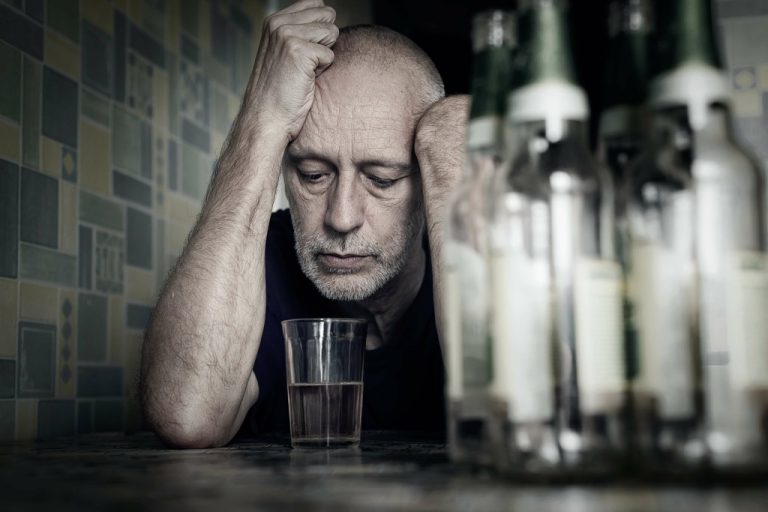
Loneliness and Alcoholism: Granite Mountain Behavioral Healthcare
They might also have financial or legal difficulties that feel overwhelming and add to the feeling of being alone. If you like kids, try volunteering at a local school for their after school clubs or even volunteer for one of their sports teams. You can also volunteer at nursing homes to help someone else not suffer from feelings of loneliness.
- Sometimes, loneliness stems from internal unrest, which can be triggered by external social factors that make you feel dissociated from a group or community.
- Drinking in excess is known to cause severe disruption in personal relationships and among families.
- Do your best to maintain relationships with close friends and family by keeping in touch.
It can be helpful to make connections with friends and family members, adjust your lifestyle, get a pet, and seek professional help through in-person or online therapy. According to JAMA (the Journal of the American Medical Association), half of those with severe mental health disorders also abuse substances, including alcohol. More than one-third of those with alcohol use disorder have at least one mental health condition. Of those diagnosed with SMIs (serious mental illnesses) like depression, nearly one-third also abuse alcohol or illicit drugs.
The Risks Of Loneliness And Using Alcohol To Cope
- It often feels very tempting (and easy) to keep drinking until you feel better, especially when you have less access than usual to more helpful coping methods.
- But regularly drinking more alcohol than these guidelines recommend can pose a number of health risks, including depression.
- To be clear, loneliness is not depression, though the two may be linked.
- Existing research indicates that depression can cause alcohol overuse, and alcohol overuse can cause depression.
- Further Weiss et al., reported 2 types of loneliness i.e. emotional and social loneliness.
While coping with our ‘new normal’, many of us are finding ourselves more lonely and isolated than ever before. Here Mark explores the complicated relationship between loneliness and alcohol. And that helps to open the door to recovery and healing — particularly if the people in your life have also been struggling with your drinking. Loneliness can be a huge factor in the development of alcoholism and a person’s success with giving up drinking. Whenever I have tried to limit my own drinking, it’s felt like I’ve also had to cut back on having a nice time or connecting with my friends. When you feel alone and unsupported (even if that’s not actually the case) it makes it even harder to break out of a toxic cycle and find the help that you need to stop drinking.

Long-Term Risks of Alcohol Dependence
Terminal uniqueness is detrimental to your mental well-being and only serves to make you feel more isolated. Be open about your feelings, others may be feeling the same way or have experienced something similar but are afraid to admit it. Since it is strongly believed that alcoholism can be the side effect of poor mental health, as a result of strong and continued feelings of loneliness. It is important to deal with both issues since they both are directly connected. Experiencing loneliness may lead to feelings of emptiness, sadness, helplessness, and pessimism. People may feel dissatisfied with life, lack motivation, or lose their enjoyment of hobbies or activities.
Benefits of online therapy with a mental health professional
If you think you have a problem with either, talk to your doctor or therapist. There are lots of choices when it comes to medication that treats depression, and there are drugs that lower alcohol cravings and counter the desire to drink heavily. You can also get help from Alcoholics Anonymous or an alcohol treatment center in your area.

These types of loneliness can be isolated to a specific situation, like feeling lonely at school or work, or can be more encompassing during times of major transition. Oftentimes, this type of loneliness tends to fade as we adjust to our new environments. However, some circumstances may cause longer periods of loneliness and can be affected by socioeconomic, environmental, cultural, or physical factors.
Whether you’re experiencing depression or not, it’s essential to evaluate your drinking habits and consider why you drink, when you drink, and how you feel when you drink. Depending on your intoxication level, you may experience decreased inhibition, loss of judgment, confusion, and mood swings, among others. “In our society alcohol is readily available and socially acceptable,” says Jill Bolte Taylor, PhD, author of Whole Brain Living, explains. “Depression and alcohol misuse are often tied because we take a depressant to counter a chemical depression which only makes it worse.” It helps people understand events and thought processes that lead to depression and substance misuse. Alcohol can significantly impact the levels of neurotransmitters in your Twelve-step program brain, making depression worse.
Therefore, you may be taken advantage of or participate in risky activities but won’t recall anything. You may even hurt someone verbally or physically but not remember it. This can increase depression, and does drinking make your depression worse if you have a broken relationship, it increases your loneliness. As alcohol enters the brain and impacts the central nervous system, it also changes how neurotransmitters communicate. Neurotransmitters are chemical messengers, sending signals via neurons and synapses.
Carolina Recovery
It doesn’t have to be Alcoholics Anonymous — I know not everyone is into the whole 12-step recovery thing — but there are tons of other support groups for people who are struggling with alcoholism. Working as a standup comedian in Chicago, I think about alcoholism and my own alcohol consumption a lot because drinking is such a huge aspect of the culture. Struggling with alcoholism — or even just the threat of alcohol addiction — can make you feel isolated, but trust me, you’re far from alone. We performed a cross-sectional analysis of publicly available data from the 2008 wave of the HRS core data file (HRS website, 2013a). Additional details on the sample design and procedures have been described https://ruelisheim.fr/is-alcoholism-hereditary/ previously (HRS website, 2013b; Heeringa, 1995). Further Weiss et al., reported 2 types of loneliness i.e. emotional and social loneliness.
- In the short term, drinking alcohol can make you feel good, sociable, and even euphoric.
- You should first voice your concerns with your healthcare provider.
- Excessive alcohol drinking can also cause problems socially, such as issues with family, school, employment, and friends.
- The good news is that treating both alcohol misuse and depression can make both conditions better.
But if you turn to alcohol to get you through the day, or if it causes trouble in your relationships, at work, in your social life, or with how you think and feel, you may have a more serious problem. Therefore, they continue to misuse alcohol even if they experience negative consequences. Dopamine produces reward and pleasure when released into the brain and body. Misusing alcohol may cause a surge of dopamine, making you feel happy, energized, and social.
Remember to take care of yourself and reflect on the positive things in your life. Meditation and exercise help the mind and body relax and strengthen. Reestablishing a positive relationship with yourself will also bolster your confidence to approach new social situations.
